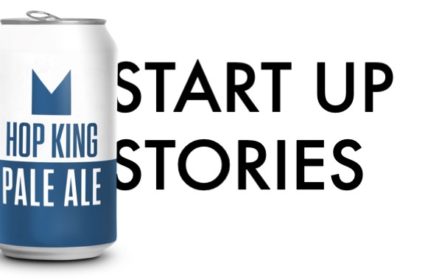Startup Stories: ESKA yoga

This article is part of our series on Start up Stories. You can view the full series or download the report.
Combining her love for design and Yoga, Shivani Nirula founded ESKA in June 2014. A graduate of National Institute of Fashion Technology New Delhi and a keen Yoga practitioner, Shivani recognized the need for skin-friendly Yoga & Activewear and created a collection of high-energy designs in collaboration with young Indian designers in natural fabric and spandex blends. To give some perspective her design was featured as the official International Yoga Day t-shirt worn by over eighty thousand people globally at annual events led by India’s Prime Minister Narendar Modi.
Already featured in Forbes, Elle, Woman’s Health and many more, alongside being a crucial part of the team here at Brand Genetics – it seemed only right that we caught up with Shivani as part of this blog series!
Tell us a bit about Eska, why did you get started and what is it that’s so unique about this brand?
Eska is a passion project that I started five years back when I combined my love for Yoga and design with an intent to create a comfortable and stylish Yoga apparel range for women and men in India. I felt that there was a gap in the market for something suited to the Indian market, specifically the Indian aesthetic, body shape and importantly, the climate. We use a fabric of primarily fine natural cotton blended with a touch of performance fabric to create a range that enhances the practice of Yoga.
In your view, what is changing in terms of what consumers want, and how is Eska responding?
I tend to use a very intuitive process to dig out consumer insights – often starting with my own observations – and then digging deeper to find out if other Yoga practitioners think similarly, or different in some cases, and why. It feels like a meditative process to me, where I tend to look inwards instead of outwards. So this is a tough question for me to answer, but broadly speaking I think consumers are increasingly being drawn by brands that are authentic, have a purpose, and follow the principles of ‘Positive Psychology’
How do you decide what’s next for Eska? Any guiding principles or approaches to insight and innovation?
To be honest, Eska is an extension of my own personality and is constantly evolving with my experiences. Over the last five years, I’ve moved across the world, lived in four different cities, completed two business degrees and had the privilege of working with incredibly talented people. I’m now leveraging my entrepreneurial background and gaining valuable work experience in London, in the Insight and Innovation industry, which has added a whole new dimension. All this has really widened my perspective on the potential for Eska. It’s safe to say that Eska is still a work in progress, and the next collection is currently being designed with some cool new twists!
In your opinion, what do you think the future looks like for your industry?
For the wellness industry, the next few years are going to be massive. If you really think about it, wellness isn’t even just one industry. Almost each and every product or service we interact with has started integrating an aspect of wellbeing. I think the future is all about slowing down, reconnecting with nature, and looking inwards for peace. How this translates across various industries like fitness, hospitality and even alcohol should be very interesting.
Again, for fashion, I think sustainability is a key theme for the future. There is a big shift away from fast fashion towards a more curated, but less numbered wardrobe. It’s fascinating how this is already tricking down to fast fashion, with H&M now introducing labels which reveal the production source – something that was always completely unthinkable and a highly protected secret in the fashion industry! Historically, fashion always reflects social, cultural and political trends, so I’m curious to see how it responds to everything going on in the world – from Gen Z’s age of anxiety to consumer culture in the Middle East.
Finally, tell us about some brands that you find inspiring for Eska from a marketing perspective? What stands out about them and why?
A brand that inspires me is Glossier. Funnily enough, I’ve never been a fan of digital and always believed in the power of physical senses. Glossier has made me challenge that and admire how a brand can exist so wholesomely in a digital space alone, especially in a category like makeup which has traditionally always been sold in-store instead of online. I love its philosophy of ‘democratising makeup’- something which often feels out of reach for young people, who are increasingly under pressure to look perfect. Glossier’s message is focussed on enhancing natural skin, as opposed to hiding flaws – an important shift towards wellbeing. Through its brand, Glossier communicates that every person who wears makeup is an expert – and uses its digital platforms so effectively to reflect that by its unique display of customer reviews, showing not only the most positive but also the most highly rated negative review for its products.
The Brand Genetics take
The success that Shivani has achieved is clearly impressive, especially, as is the case with many start-up’s, it was launched on top of an already busy lifestyle. That being said, scarce resources (time/ capacity) has forged an agile and dynamic approach to innovation.
By combining with other members of the community, such as partner designers, Eska is able to maximise its reach and outsource some of the creativity and innovation. On top of this, a clear vision and first-hand experience of the target market is key. Although a developing market, focusing on the local needs, body shapes and tastes of the Indian consumer has allowed Eska to provide a highly aspirational solution to a real consumer problem.
If you want to find out how our agile innovation methodology can growth hack your business – get in touch today.



